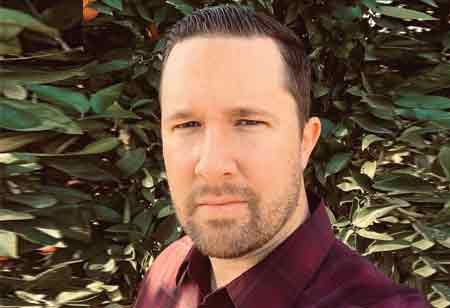

I agree We use cookies on this website to enhance your user experience. By clicking any link on this page you are giving your consent for us to set cookies. More info
Thank you for Subscribing to Business Management Review Weekly Brief

Could You Tell Me About Your Roles And Responsibility In Your Current Organization?
I’m currently the Head of Global Physical Security and Safety for Activision Blizzard. I oversee programs such as our GEROC (Global Emergency Response Ops Center), threat management, protective intelligence, guard force, executive protection, event security, travel security/safety, and health & safety compliance. I oversee a global security team that covers all of our business units which include AB Corporate, Activision Publishing, Blizzard Entertainment, and King Digital Entertainment.
Can You Tell Me About Some Of The Work You’ve Done While At Activision Blizzard?
When I started in 2019, the physical security and safety teams were distinct and embedded within each respective business unit. Over the course of a year, while I helped support the company’s larger Covid response, I particularly focused on evaluating our structure, talent, and budget, specifically toward security, and subsequently created a new team that functions globally across the enterprise. The new roles were set up by functional specialty instead of by business unit.
Each Business Unit Had Their Own Security Systems, Escalation Processes, Relationships, Etc. When Centralizing, It Was Important To Encourage The Notion Of “One Band, One Sound.” I Addressed This By Creating A Mission State
What Were Some Of The Challenges You Had When You Centralized The Team?
When creating the new org structure, it was important to keep in mind that the team needed to be set up to best support the business, not necessarily each individual. Another challenge is addressing the mantra of “we’ve always done it that way.” Each business unit had their own security systems, escalation processes, relationships, etc. When centralizing, it was important to encourage the notion of “one band, one sound.” I addressed this by creating a mission statement, motto, and operating principles early on. It’s also important to be transparent in the decisions you are making, as this puts employees at ease; it helps curb animosity during the early stages. You also have to know when to be firm in your decisions, as sometimes being too accommodating stifles progress.
" Each Business Unit Had Their Own Security Systems, Escalation Processes, Relationships, Etc. When Centralizing, It Was Important To Encourage The Notion Of “One Band, One Sound.” I Addressed This By Creating A Mission Statement, Motto, And Operating Principles Early On "
One item that had to be addressed early on was how security/safety matters were escalated. We lacked a central command center across all three business units, so we created two command centers that both operate 24/7. We also created an enterprise security/safety training and pushed an internal newsletter article to reinforce how employees should report security/safety incidents. Another key component to this was centralizing our incident and case management system in order to accurately track our incident data.
One item that helped create a central identity amongst the team was reinforcing our name (Global Security & Safety) across each business unit. We also created a team logo which helped with internal branding and promoted our new org. We then had shirts, hats, jackets, and challenge coins produced which not only brought our unifying symbol to our team in a tangible way but it helped build credibility internally.
What Advice Could You Impart To An Aspiring Professional In Your Field?
There are a couple of things. You have to demonstrate competence early on. Find a mentor and learn from their mistakes; everybody makes them, but you don’t need to make them yourself in order to learn from them. If you do make a mistake, don’t make the same one twice.
Something else younger professionals should do is seek extra assignments or special tasks. You may not immediately see a financial gain, but you are learning; think of it as an investment. You are broadening your knowledge base, which will either help you promote at your current employer or help you move on to the next one.
Another piece of advice, don’t get pigeonholed. It’s good to excel at something, but if your goal is leadership, you need to have a broad understanding of what you oversee. If you stay in a specialty too long, people will start to see you only in that frame. This is why extra assignments or tasks are helpful to your personal brand, as they demonstrate you can operate outside of your specialty.
One last piece of advice, you need to expand your view beyond security/safety. You have to see things from the perspective of the business you support. Many security professionals have a law enforcement or military background in which the mission differs from that of a private business. Understanding how your company operates will allow you to not only provide better support but it will give you insight and understanding of the business decision-making.